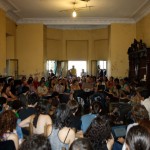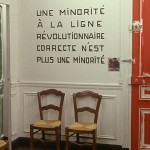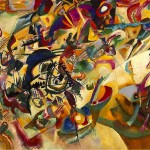
The Intolerable-Inquiry: The Documents of the Groupe d’information sur les prisons
We are fortunate to now have in a French edition a collection of the five booklets produced by the GIP between February 1971 and January 1973 – Intolérable, numbers 1 through 4, and a collection of prisoners’ demands – combining questionnaires and inquiries on prison conditions, texts and declarations from prison uprisings, reports by prison psychiatrists, a dossier on the killing of George Jackson and the black prison movement in the US, and correspondence and information about the wave of suicides in French prisons.
 Viewpoint Magazine
Viewpoint Magazine







